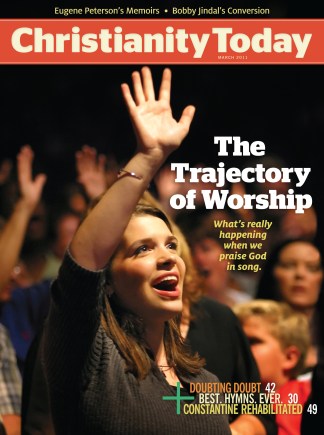The city council of Burbank, Illinois, passed a new zoning law late last year banning churches from building in commercial areas. The action came after Rios de Agua Viva, a Hispanic congregation, signed a $900,000 contract to transform an old restaurant into its new sanctuary.
The congregation did what many have done before it: it filed a lawsuit alleging violations of the Religious Land Use and Institutionalized Persons Act (RLUIPA), a 2000 federal law designed to protect houses of worship from discrimination.
More than a decade after RLUIPA’s passage, however, many religious institutions face lengthy, costly battles to exercise their freedom to worship, said Richard Baker, an attorney who is representing the Burbank church.
“Churches do not realize the fight they’re in,” Baker said. “If you go into a commercial district, they say you’re wrecking their tax base. If you go into residential, they say you’re disturbing their peace.”
While the issue is not new, Baker said, “The objections to churches obtaining zoning do seem to be heating up under the [economy].”
Eric Rassbach, national litigation director for the Becket Fund for Religious Liberty, echoed Baker’s assessment: “There are many, many more cases where municipalities are trying to zone out churches to keep their property on the tax rolls. I would suspect it’s related to the economy because of tighter budgets for local governments.”
In Houston, churches recently raised objections over a proposed drainage fee by city officials. In Mission, Kansas, churches filed a lawsuit after being charged a “transportation utility fee” to help fix roads.
In the case of Burbank, Mayor Harry Klein told the Chicago Tribune, “It’s obvious—every city likes to see their tax base grow, that’s a given.”
An alderman in Evanston, Indiana, raised concerns last year about the impact of “storefront churches” on the tax base and proposed an ordinance requiring special-use permits for houses of worship to operate in all business or commercial districts.
“If it had passed, it would have made it impossible for any new house of worship to locate or relocate in the city of Evanston,” said Mark Dennis, moderator of the Evanston Pastors Fellowship. The city passed a scaled-down version of the ordinance in December.
Many municipalities “clearly do not understand what is protected under RLUIPA,” said Roman P. Storzer, a leading RLUIPA attorney in Washington, D.C. “It’s up to the church to decide how to exercise religion. It’s not up to the city or county.”
Copyright © 2011 Christianity Today. Click for reprint information.
Related Elsewhere:
Other Christianity Today articles involving RLIUPA include:
Testing Property and Prisoner Protections | The 2000 Religious Land Use and Institutionalized Persons Act takes shape. (July 29, 2010)
Victory for Religion Behind Bars | The Supreme Court’s RLUIPA decision is good, but more work needs to be done to ensure prisoners’ religious freedom. (June 2, 2005)
Federal Judge Rules Parts of Church Land-Use Law Unconstitutional | Groups plan to help Elsinore Christian Center appeal zoning case. (July 3, 2003)
President Signs Religious-Liberty Bill | Law says government must again prove compelling interest to curb free exercise of religion in land use, prisons, and hospitals. (September 2, 2000)









